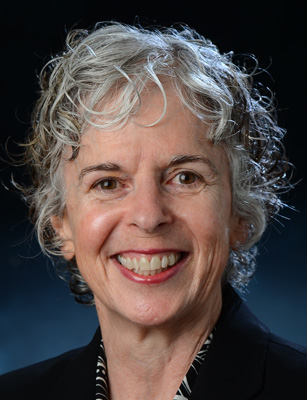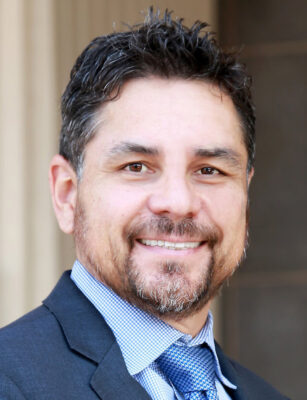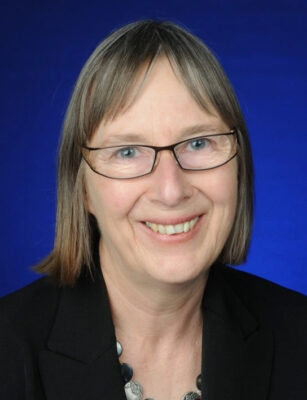Learning Modules
Our teacher learning modules and assessment-focused communities include videos and links to research, briefs, and worksheets from our Resource Hub.
Perspectives on Formative Assessment, Student Agency, and Equity: A Conversation Series
WestEd experts Nancy Gerzon and Barbara Jones hosted this conversation series highlighting scholarly and practitioner perspectives on the intersections between student identity, classroom culture, and formative assessment as levers for promoting agency and equity. Gerzon and Jones hosted the following conversations with renowned scholars and educators:

Ambitious Teaching and Formative Assessment: Creating Conditions for Equity
With Lorrie Shepard, University Distinguished Professor and Dean Emerita at the University of Colorado, Boulder School of Education

Seizing the Opportunity to Promote Student Agency Through Online Learning in a High-Poverty School District
With Steve Holmes, Superintendent of the Sunnyside Unified School District, Tucson, Arizona

An Ecological View of Assessment for Learning
With Bronwen Cowie, Associate Dean of Research in the Division of Education, at the University of Waikato in New Zealand

Leadership for Learning, Leadership for Equity
With Gene Wilhoit, Executive Director of the National Center for Innovation in Education
Each page contains insights from WestEd’s formative assessment experts, as well as links to session recordings, including video and audio files, and materials. The Padlets on each conversation page include select video clips from each conversation; please click on the play button in the upper left hand corner of each video to play clips. Full audio recordings of each conversation are also available.
Ambitious Teaching and Formative Assessment: Creating Conditions for Equity
In our conversation, when Lorrie Shepard said that point systems are the death of formative assessment and that grading systems are turning teachers into point recorders, whoa… that blew me away. These felt like true statements to me. A key thing I learned in this conversation was that when we try to gather evidence of student learning, it is important that we attempt to learn something meaningful from it, not just create a score. And that we ask students themselves to make meaning out of evidence of learning. This is part of Lorrie’s bigger idea of ambitious teaching which she describes in more detail during our talk. The word I keep mulling over from that notion is “substantive”. Lorrie shares ideas about the importance of designing learning experiences that generate substantive evidence of learning that teachers and students can use on a daily basis to move learning forward. This feels like a paradigm shift to me.
– Barbara Jones
With Lorrie Shepard, Gerzon and Jones discussed the following topics:
- The relationship among ambitious teaching, formative assessment, identity, agency, and equity
- What we are learning about the relationship between accountability, learning, and equity
- Creating equitable assessment approaches to measure student online learning
- Moving formative assessment out of the “balanced assessment system” and into a framework for teaching and learning
Curated segments of this conversation can be played in the Padlet below. Please click on the play button in the upper left corner to play the video directly in Padlet. An audio recording of the entire conversation and session materials can also be found on this page.
View Materials for this Session
Lorrie Shepard is the University Distinguished Professor and Dean Emerita at the University of Colorado Boulder School of Education. Her research focuses on psychometrics and the use and misuse of tests in educational settings. She has led research on the use of assessment and testing in a wide range of testing areas, including the effects of high-stakes accountability testing, grade retention, teacher testing, and the use of classroom assessment to support teaching and learning. In 2019, in preparation for the National Council of Measurement in Education Special Conference on Classroom Assessment, she and her colleagues convened national experts to develop Classroom Assessment Principles to Support Teaching and Learning, a publication that describes how classroom assessment can best be enacted to support deep learning. These principles provide a framework for teachers, leaders, and policymakers to develop new conditions for learning that foster student agency and self-regulation.
Seizing the Opportunity to Promote Student Agency Through Online Learning in a High-Poverty School District
Steve Holmes offers us a compelling and urgent message where he shares both the rationale for change and the assessment for learning strategies his district has adopted to move from compliance-oriented learning to systems that focus on identity, agency and purpose. Steve raised many ideas related to the ways in which formative assessment is a lever for students and teachers to shift their roles and engage as true partners in the learning process, but the single idea that I have been thinking about is what it means to change a system from the ground up – as he says, to “develop common language, common structures, common systems and a culture of learning that brings honor back to the profession of teaching in ways I think we had lost.” Not nearly enough is said about this, and yet it is so necessary to support agency and equity.
– Nancy Gerzon
With Steve Holmes, Gerzon and Jones discussed the following topics:
- Why student agency is critical in high poverty districts
- The role of formative assessment practice in promoting equity
- How online learning experiences can promote student ownership over learning
Curated segments of this conversation can be played in the Padlet below. Please click on the play button in the upper left corner to play the video directly in Padlet. An audio recording of the entire conversation and session materials can also be found on this page.
View Materials for this Session
Steve Holmes is the Superintendent of the Sunnyside Unified School District (SUSD) in Tucson, Arizona. A champion for equity, his work focuses on urban education reform and bringing about deeper learning practices, coherence, and innovation to high poverty districts. Under his leadership, SUSD is now recognized as an industry leader in open educational resources, formative assessment, and design thinking. He is a staunch supporter of public education and a leading voice in support of English Learners. When his district shifted to online learning in the spring, his message to educators was, Let’s seize this opportunity to promote student agency.
An Ecological View of Assessment for Learning
One of my biggest takeaways from our conversation with Bronwen Cowie was the idea of a learning ecology. A learning ecology is a network of connected resources available to a learner to support their progress. These are resources that exist in a supportive structure, both inside and outside of the classroom. Bronwen uses the metaphor of a pond to describe her own personal learning ecology, with each element of the pond sustaining her learning at different levels – from small to large. In our conversation, she describes how this relates to the classroom, with teachers’ roles shifting from delivering content to curating students’ learning ecologies to enable them to access what they need, when they need it – from artifacts, to texts, peer support, and teacher feedback. This represents a key shift in student agency and advancing positive learner identities.
– Barbara Jones
With Bronwen Cowie, Gerzon and Jones discussed the following topics:
- Framing teacher noticing in a formative way to support equity
- Interrupting current formative practices to prepare to respond differently
- The role of learner identity in learning and student agency
Curated segments of this conversation can be played in the Padlet below. Please click on the play button in the upper left corner to play the video directly in Padlet. An audio recording of the entire conversation and session materials can also be found on this page.
View Materials for this Session
Professor Bronwen Cowie is Associate Dean of Research in the Division of Education, at the University of Waikato in New Zealand. Bronwen’s research focuses on early secondary and primary school, and early childhood settings. She is particularly interested in the nature of teacher-student interactions as part of formative assessment within the wider ecosystem for science education. A feature of her assessment for learning work is attention to how teachers invite in and notice, and recognize and respond to children’s ideas. She has explored the role funds of knowledge have to play as part of culturally responsive science teaching and assessment, the frameworks teachers use to attend to student learning, and the provision of peer feedback in support of students’ writing.
Leadership for Learning, Leadership for Equity
There are many frameworks that lay out leadership competencies and provide detailed descriptions of the knowledge, skills and dispositions that are essential school leader practices. In our conversation, Gene Wilhoit added another critical dimension that I had not thought about, which is that these competencies must always be understood through context. As Gene identified new competencies for transformational leadership, he was careful throughout the conversation to remind us of the contextual questions that we all need to pay attention to. These include the impact of the community’s historical relationships with schools, understanding cultural norms, and how issues such as trust and reciprocity are valued and need to be continuously attended to, to meet ambitious goals.
– Nancy Gerzon
With Gene Wilhoit, Gerzon and Jones discussed the following topics:
- Transformational leadership that support schools and districts to address equity and inclusion
- Examples of partnerships that help to engage students, families, teachers, and district and state leaders and that build on the strengths of local communities
- Re-imagining assessment to improve student autonomy and agency, and advance equity
Curated segments of this conversation can be played in the Padlet below. Please click on the play button in the upper left corner to play the video directly in Padlet. An audio recording of the entire conversation and session materials can also be found on this page.
View Materials for this Session
Gene Wilhoit is the Executive Director of the National Center for Innovation in Education (CIE), where he leads national initiatives to advance systems that seek greater equity in how children develop the identity, community, agency, and competency that pave the way for greater equity in our larger society. Through his tenure, CIE has contributed to developing and sustaining a wide variety of learning communities for leaders, educators, and community members committed to build and reshape systems so that they are, by design, always seeking greater equity. Prior to his work at CIE, Gene led educational initiatives at all levels as a classroom teacher, district leader, state superintendent, and national policy advisor. While at Council of Chief State School Officers, Gene spearheaded the states’ collective action to adopt the Common Core Standards, and founded the multi-state Innovation Lab Network. He brings expertise focused on transformational leadership, reshaping educational priorities, and re-envisioning assessment and learning to generate student autonomy and agency, and advance societal equity goals.
